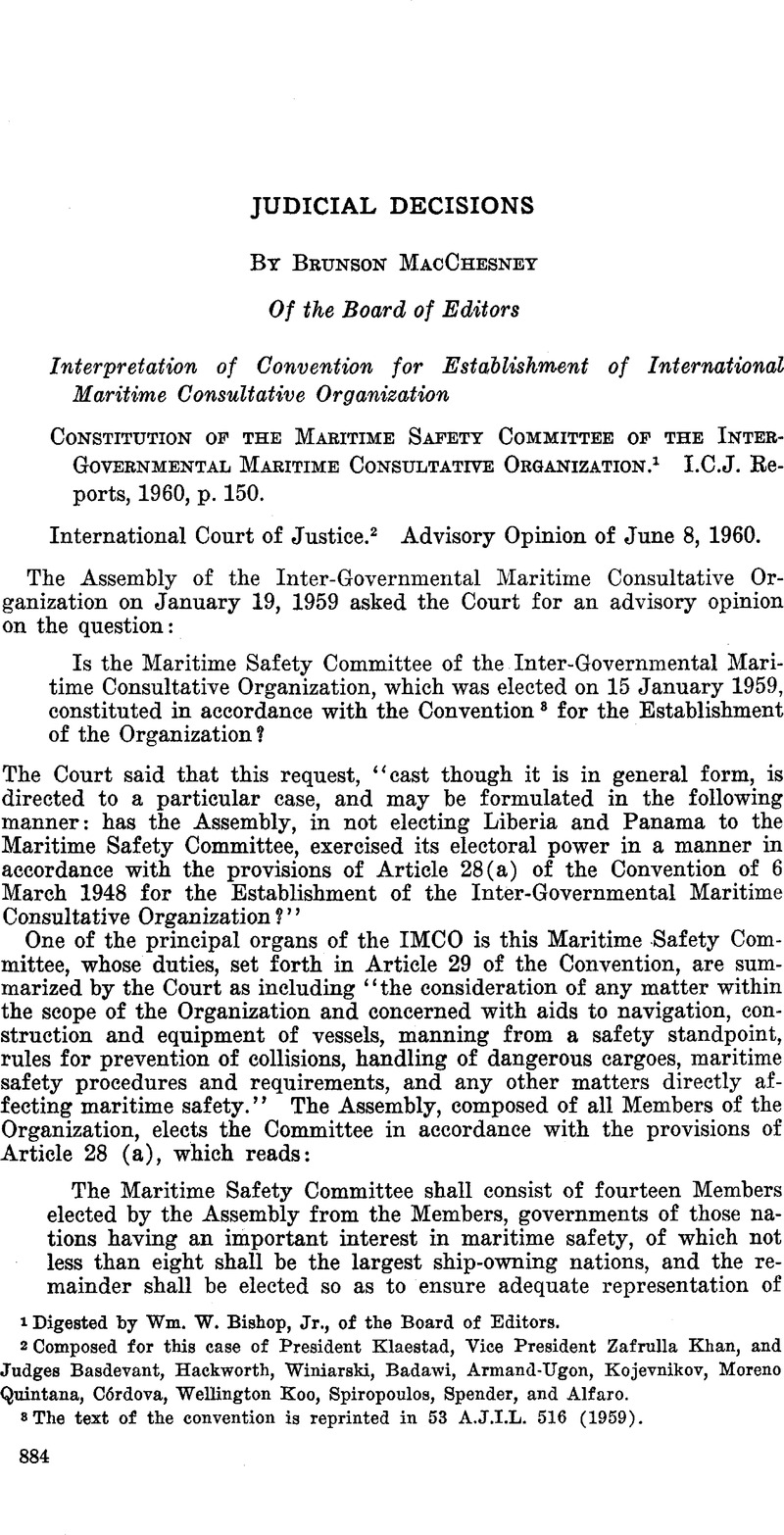No CrossRef data available.
Published online by Cambridge University Press: 28 March 2017

1 Digested by Wm. W. Bishop, Jr., of the Board of Editors.
2 Composed for this case of President Klaestad, Vice President Zafrulla Khan, and Judges Basdevant, Hackworth, Winiarski, Badawi, Armand-TJgon, Kojevnikov, Moreno Quintana, C?rdova, Wellington Koo, Spiropoulos, Spender, and Alfaro.
3 The text of the convention is reprinted in 53 A.J.I.L. 516 (1959).
4 The French version of the crucial part of this article reads: “he Comite’ de la Sécurité” maritime se compose de quatorze Membres élus par 1'Assemblée parmi les Membres, gourernements des pays qui ont un intérèt important dans les questions de sécurité- maritime. Huit au moins de ces pays doivent être ceux qui possèdent les flottes de commerce les plus importantes… . “
5 President Klaestad and Judge Moreno Quintana gave dissenting opinions. The others voting against the opinion are not identified. Judge Klaestad's principal argument was as follows:
“This Article [28(a)] lays down two conditions for being elected as Members of the group of eight. In accordance with the first condition, the Members must have ‘ an important interest in maritime safety'. The second condition refers to the requirement of being ‘the largest ship-owning nations'. It is seen from the text of Article 28(a) that these two conditions must both be satisfied by Members of the group of eight….
“Whether a Member has ‘ an important interest in maritime safety’ is a question which cannot be determined by the application of legal criteria. It depends essentially on the appraisal of the special qualifications required for membership in the Maritime Safety Committee, having regard inter alia to the duties and function of that Committee as defined by the Convention and particularly by Article 29. The appraisal of such qualifications is clearly of a discretionary nature.”
He added: “The term ‘election’ (‘elect’) implies, in conformity with the natural and ordinary sense of that word, the exercise of a choice or selection. It is not compatible with any automatic test which imposes itself on the electing body in such a manner that no freedom of choice is left to that body.” Since the Assembly had used its discretion not to treat Liberia and Panama as having “an important interest in maritime safety,” President Klaestad believed it unnecessary to consider the meaning of “largest shipowning nations” or to decide whether registered tonnage or ownership was the criterion.
Judge Moreno Quintana emphasized that “ A power of election is incompatible with a mandatory obligation to designate a particular country”, found that owership was more important than registration of vessels, and said of ownership that it “reflects an international economic reality which can be satisfactorily established only by the existence of a genuine link between the owner of a ship and the flag it flies. This is the doctrine expressed by Article 5 of the Convention on the High Seas which was signed at Geneva on 29 April 1958 by all the eighty-six States represented at the Conference that drew it up. This provision, by which international law establishes an obligation binding in national law, constitutes at the present time the opinio juris gentium on the matter.”